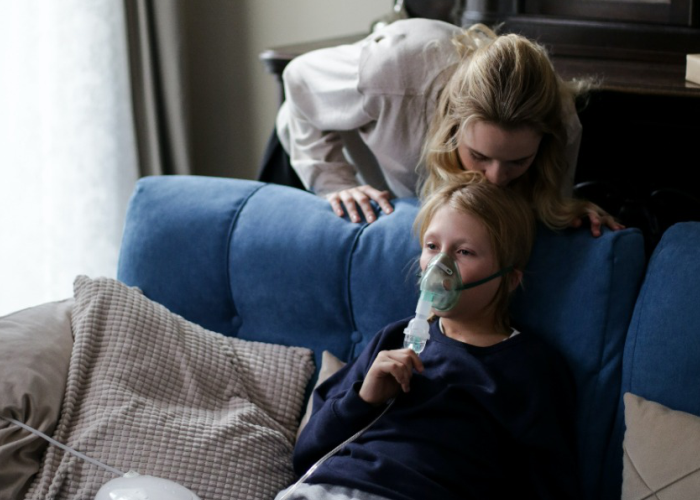The covid-19 virus has exempted nobody from its ill effects. From older people to kids, including newborns, were still in danger zones of getting infected with the virus. Children can contract the coronavirus, but their symptoms are usually milder than adults. And they may have no symptoms at all in some situations. Hence, their chances of contracting COVID-19 are similar to that of adults.
This article discusses the possible scenarios of the covid-19 in babies and preventive measures which could be opted for protection against the same.
Symptoms Of Covid-19 In Babies
The symptoms of COVID-19 infection in babies and children appear to be milder than in adults. Studies show that people under the age of 19 have had fewer hospitalizations. And over 90% of children who get sick experience mild to moderate cold-like symptoms, like fever, runny nose, cough, etc.
Children may experience cold-like symptoms after getting infected with covid-19
Covid-19 may cause more severe sickness in children with underlying medical diseases. These diseases could be obesity, asthma, diabetes, blood disorders, heart or liver disease, kidney disease or a whole weakened immune system. The Multisystem Inflammatory Syndrome in Children (MIS-C) has led to the hospitalization of certain children and teenagers. Fever, stomach pain, vomiting, diarrhea, rash, headache, and confusion are other symptoms. They resemble youngsters with toxic shock syndrome or Kawasaki disease, which involves inflamed blood vessels.
RSV or Respiratory Syncytial Virus shares great resemblance to covid-19. Here’s all about RSV in babies.
A word of caution. It is advisable to get medical attention straight away if your child exhibits severe symptoms. These could include breathing problems, skin colour changes, and problems waking up or being confused.
Protection Against Covid-19 In Babies
Try to apply all simple and effective strategies to help prevent your child from catching or spreading COVID-19. These include washing your hands frequently, keeping your child away from sick people, wearing masks when around others, playdates, etc. Here are some of the detailed ways to cut down the level of risk associated with this virus:
Mandate the use of masks for children aged 2 and more
- Mandate the use of masks – To help prevent the spread, the CDC provides some recommendations. People who aren’t completely vaccinated or are in an area with significant/high transmission should wear a mask in public locations. Ensure that your child does not touch the mask while it is on.
- Home is the safest place – Stay at home and make your kid avoid face-to-face playdates. For the time being, it’s important to avoid direct contact with people in order to prevent the disease from spreading. Avoid going to public areas with your children like shopping malls and movie theatres as much as possible. Even if your child does not appear to be unwell, they may still get the infection and spread the virus to others.
- Keep your house clean – Every day, clean high-touch surfaces such as toilets, sinks, doorknobs, light switches, handles, cellphones, tablets, and television remotes. If your child has a favourite stuffed animal or soft toy, wash it frequently at the highest temperature feasible.
To-Dos In Case Of Infection
Firstly, if you suspect any kind of symptom doubting your child has an infection, call your doctor to confirm. If the test reports are positive, you can go for the following:
- Separate them from other members of the family, preferably in a separate room and bathroom. They should also wear a face mask around other individuals.
- Clean and disinfect the surroundings on a regular basis. Allow your sick child to clean high-touch areas such as phones, doorknobs, and toilets if they are old enough. If not, do it yourself while wearing a mask.
- Keep track of their signs and symptoms. If your child is having problems breathing, has chest pain, or appears confused, call your doctor at the earliest possible.
- Even if they appear to be getting better, keep them in isolation. Once your child has had a full day without a fever, their other symptoms have improved and it has been at least 5 days since they became ill, they can be around other people. They must continue to wear a mask when they are in public for another 5 days, for a total of 10 days.
